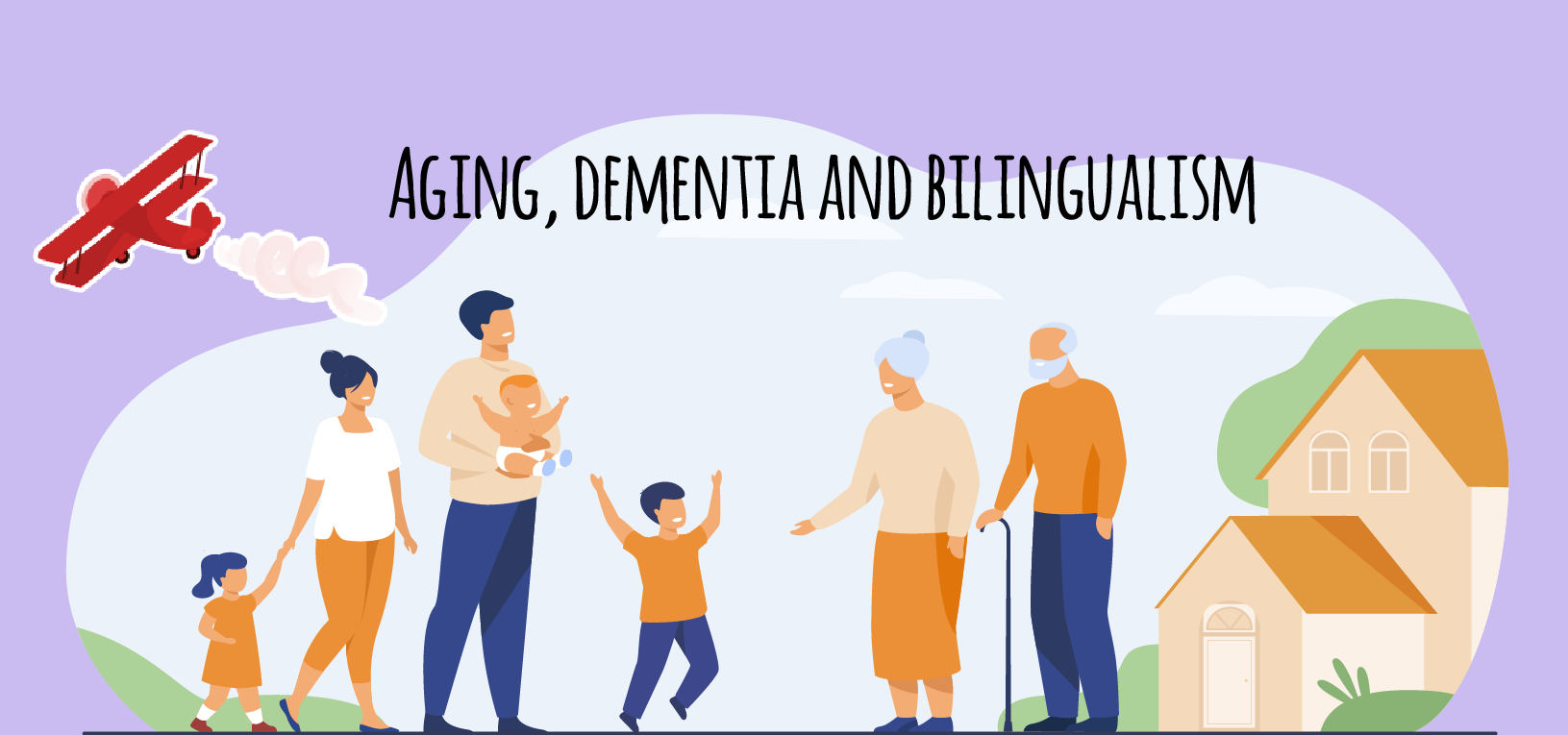Aging, dementia and bilingualism

Aging, dementia and bilingualism
Based on the United Nations report on the aging process of the world population , we can affirm that the number of people aged 60 years and over has increased considerably. Worldwide, the number of these older people is growing considerably faster than the number of people in any other age group. As is to be expected, this accelerated trend is the cause of very serious economic and social changes that are accompanied by a series of diseases in aging, such as dementia.
In this article we deal with aging, dementia and the positive repercussions that the study, knowledge and practice of bilingualism have in older people to minimize the delay of dementia.
What is dementia?
Dementia is a symptom of impaired cognitive functions that negatively affects the daily life of the patient. This cognitive wear and tear has a huge impact not only on the patient’s health and self-care, but also on the costs of care, whether at home or in a residence.
However, currently, there is still no effective drug treatment for cognitive impairment. Therefore, there is a growing interest in alternative non-pharmacological studies that could maintain or even increase this cognitive reserve to achieve that healthy older people delay the deterioration of cognitive functions.
Cause of death among the elderly
Within dementia, Alzheimer’s disease (AD), along with heart disease, cancer and respiratory diseases, is the most common cause of death among older people. Sadly, dementia affects about 58 million people , and the number of older people with dementia is estimated to triple by 2050, with about 9.9 million new cases diagnosed each year worldwide.
It’s sad but at present, there is still no effective drug treatment for cognitive decline. Therefore, the hopes for now are based on alternative non-pharmacological approaches, which can maintain or even increase the so-called cognitive reserve and thus allow healthy older people to delay the deterioration of cognitive functions.
Bilingualism
One of these mental activities, which can also help improve cognitive reserve, is bilingualism, that is, the ability to speak more than one language. In fact, bilingualism allows for constant switching between languages , with their different sounds, words, concepts, and grammar rules, and offers effective training in executive functions such as attention, switching, inhibition, and supervision. All of this contributes to a greater cognitive reserve.
Cognitive reserve enhancer bilingualism.
We can define cognitive reserve as resistance to neuropathological damage of the brain. It has now been assumed that positive neural changes are caused by a physically and mentally stimulating lifestyle.
Bilingualism in the elderly
Therefore, it is already known that bilingual people can improve their cognitive reserve at older ages. Thanks to the use of two languages and the so-called mental flexibility. Some experts argue that bilingualism is a clear case of an environmental factor that helps produce cognitive reserve. In addition, it contributes to the brain reserve .
There are several brain studies that confirm that bilingual people tend to have a greater volume of gray matter than monolinguals. Therefore, bilingualism appears to protect against cognitive decline that occurs during aging. This has also been confirmed by the most recent study by Estanga which concludes that bilingualism influences the cognitive reserve, especially in the improvement of executive and visuospatial functions.
The ability to adapt
Bilingual people have the ability to adapt to constant changes and process information in an effective and adaptive way . In addition, effective connectivity improves language processing ability and general executive control by reorganizing neural circuits.
This affects even older students whose age is considered far from the so-called critical period of language acquisition. These findings have also been confirmed by Schlegel, who have revealed that the brain maintains its plasticity in adulthood.
In his study on language learning, with 11 English speakers who studied Chinese for nine months. They have provided evidence that white matter in older people can still undergo considerable changes. This has a positive impact on learning foreign languages as we age. Therefore, it has been found that age when acquiring a second language is not such a significant factor. However, the duration of exposure to the target language is.
Finally, we remind you that if you want to obtain an official degree in any language, we leave you the number 1 online platform.


